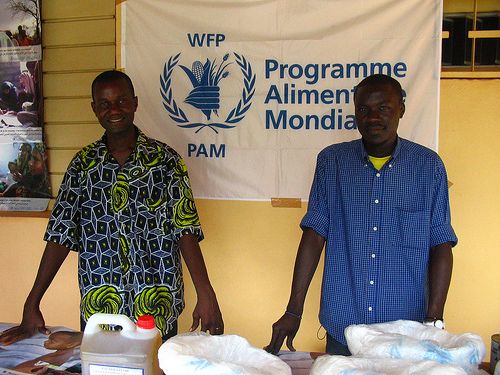Nigeria gets a share of US$92 million emissions fund
Nigeria and 20 other African countries are to have access to a $92.1 million greenhouse gas emission fund, say the Nigerian Federal Ministry of Environment. The Japanese government have made the money available through the United Nations Development Programme (UNDP).

Nigeria and 20 other African countries are to have access to a $92.1 million greenhouse gas emission fund, say the Nigerian Federal Ministry of Environment. The Japanese government have made the money available through the United Nations Development Programme (UNDP).
According to the UNDP website the US$92.1 million budget is to be used over three years. Under the programme, UNDP will help 21 African countries to implement an integrated and comprehensive adaption, action and resilience programme in connection with climate change.
This will help the developing nations to build knowledge management systems to help assist in sharing information about climate change and identify finance options for sustainable projects. It will fund national activities that are supported by regional services, such as disseminating information about climate change to vulnerable groups.
The UNDP unveiled the plans on their website in May 2008 but only recently have the funds been made available. Out of the US$92.1 million, US$11 million will be assigned to joint programmes involving UNICEF, the World Food Programme (WFP), and the United Nations Industrial Development Organization (UNIDO).
John Odey, the Nigerian Environment Minister, said at an inception forum in Abuja in October 2010 that adapting to climate change would require considerable funding.
"It is an established fact that adaptation to climate change is a complex and multi-faceted issue that presents a number of challenges, particularly for the developing world. Developing countries need international assistance and resources to support adaptation in the context of national planning for sustainable development, capacity building, transfer of technology and finance," he said.
This development came as Nigerian officials attended a series of forums over the last few weeks to prepare for the 16th Conference of Parties in Cancun, Mexico. At a one-day media training programme in Abuja, Nigeria in November of this year, organised by a number of climate change bodies, Victor Fodeke, the Federal Environment Minister, said that the participants should be wary of developments at the Climate Summit in Cancun.
"Any attempt to collapse the two-track positions involving the Kyoto Protocol (KP) and the Long Term Cooperative Action (LCA) should be viewed with suspicion," he said. He was speaking of efforts to isolate certain KP elements and transfer them into other funding agreements, with the insinuation developing nations could lose out.
The LCA focuses on developing long-term cooperation between developing and industrialised countries. It centres on adaptation, technology transfer and financial provision and is due to report COP16 with their findings.
"The developed countries are historically responsible for global warming. Any attempt to bring the two together or attempts to bring some elements of the Kyoto protocol and transfer it to the LCA document counters the Bali agreement," said Fodeke.
He also gave an indication on what was in store at COP16 when he said that it was developed countries that should have conditions like monitoring, review and valuation (MRV) imposed on them as regards to funding of climate change projects, and not the developing countries. Author: Leroy Robinson| Climate Action Image: hdptcar/flickr






